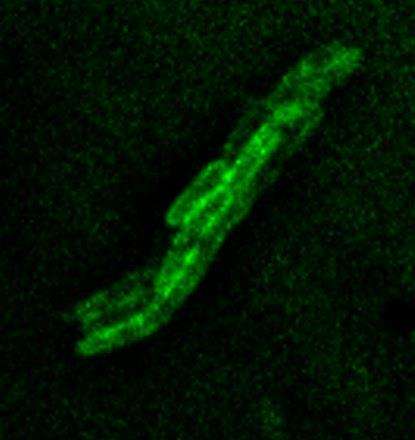Enzyme is crucial for combatting antibiotic-resistant E. coli infections

Research by bioscientists at the University of Kent and the University of Queensland is expected to pave the way for new approaches to kill bacteria that no longer respond to conventional antibiotics.
In a paper published by Scientific Reports, Kent's Dr Mark Shepherd and colleagues demonstrate the importance of an enzyme, cytochrome bd-I, for survival of E. coli that is resistant to multiple antibiotics.
E. coli causes serious conditions including sepsis, bladder infections, kidney failure, and dysentery. The human immune system produces nitric oxide to kill invading E. coli, and cytochrome bd-I is shown to provide significant resistance to nitric oxide during infection.
Since cytochrome bd-I is absent in humans, drugs designed to target this enzyme are less likely to be toxic to human cells. In future, targeting cytochrome bd-I with new drugs will render antibiotic-resistant bacteria more susceptible to attack from the host immune system.
Dr Shepherd is Lecturer in Microbial Biochemistry at Kent's School of Biosciences.
More information: Mark Shepherd et al, The cytochrome bd-I respiratory oxidase augments survival of multidrug-resistant Escherichia coli during infection, Scientific Reports (2016). DOI: 10.1038/srep35285

















